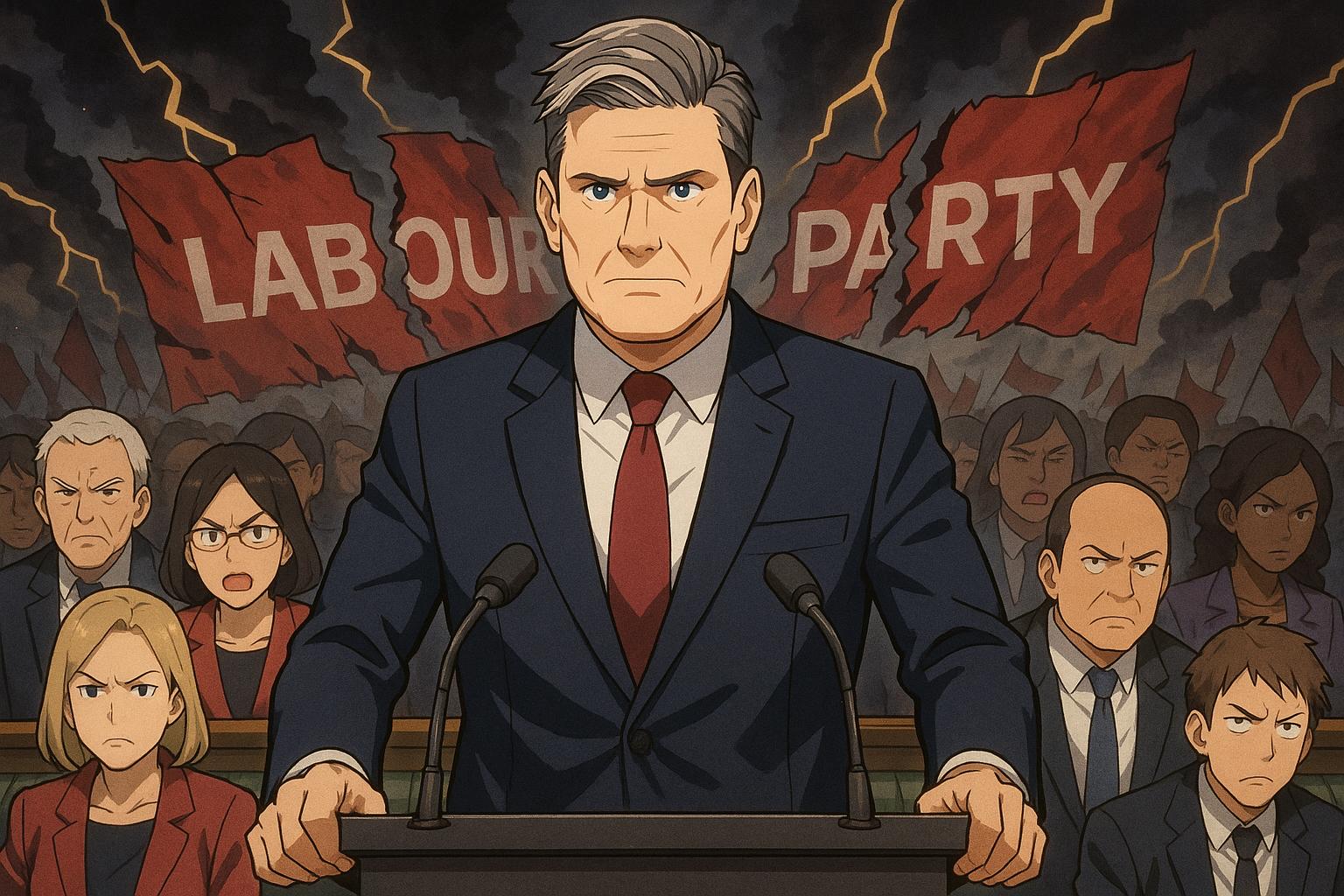In a remarkable display of political theatrics, the latest Prime Minister’s Questions revealed the depth of turmoil within the Labour Party under Sir Keir Starmer’s leadership. Faced with backlash following a controversial cut to winter fuel payments, Starmer performed a notable about-face, suggesting changes to the eligibility criteria designed to benefit millions of pensioners. His reversal, labelled by some as an “inevitable U-turn,” has raised eyebrows regarding not just his leadership but the broader trajectory of Labour as a viable political alternative.
Starmer's previous decision, made in July as part of a set of austerity measures, aimed to save £1.5 billion by limiting winter fuel payments to only the most financially vulnerable retirees, specifically those on means-tested pension credits. This policy affected around 11 million people and was met with significant criticism, including from within his party. In the wake of dismal local election results, where Labour lost ground to the right-leaning Reform UK party led by Nigel Farage, Starmer's proposal to re-evaluate the scheme underscored the pressures mounting from both his colleagues and constituents. Former Prime Minister Gordon Brown, among others, had been vocal in urging the leadership to adopt policies that would actively combat child poverty and create a more equitable economic framework.
What should have been a straightforward political strike during PMQs, however, turned into an unexpected advantage for Starmer as Kemi Badenoch, the Conservative leader, seemed oblivious to the opportunities laid before her. As Starmer laid out his plans to expand the criteria for winter fuel payments—essentially acknowledging the detrimental impact of his earlier cuts—Badenoch floundered, sticking to her prepared script and failing to seize the initiative. Instead of capitalising on a moment of political weakness, she drifted through the session, offering vague statements on the economy.
Observers noted this dynamic as a striking indictment of the current state of Conservative leadership. With Badenoch appearing disconnected from the pressing concerns of the electorate, Starmer, who many had viewed as cornered, found himself welcomed into a space ripe for influence. This was particularly notable as Starmer’s statistics painted a picture of an economy supposedly on the mend, with claims of improved growth and reduced borrowing.
Badenoch further muddied her position as she inadvertently downplayed her party's impending troubles, dismissing Starmer's U-turn as though it were an everyday occurrence. The Tory benches reflected dismay, revealing how low expectations have sunk within the party. By failing to challenge Starmer effectively, Badenoch handed him a rare opportunity in a landscape dominated by criticism and unrest.
The implications of this encounter go beyond mere politicking. The back-and-forth exemplifies a deeper rift within Labour regarding fiscal policy, particularly as the party grapples with internal disagreements over austerity versus public investment. Leaked memos suggest there are opposing views among key figures like Angela Rayner and Rachel Reeves, who differ on how best to approach the party’s economic strategy. Rayner’s inclination towards increased public spending and higher taxes contrasts sharply with Reeves' more cautious fiscal conservatism, focused on reducing public expenditures.
Such discord raises questions about Labour's long-term vision and its capacity to deliver on promises related to welfare and economic growth. Critics argue that the latest U-turn might placate dissent in the short term, but the underlying issues—such as rising inflation and public sector borrowing—remain pressing challenges that require more than temporary fixes.
As Starmer seeks to bolster his credibility amidst criticism, the spectre of fiscal limitations looms large, suggesting that any semblance of a victory may be fleeting. Observers are left wondering whether Labour can truly reposition itself as a champion for the disadvantaged, or if it will continue to falter under the weight of its policy inconsistencies and internal strife. In the interim, Kemi Badenoch's performance may illustrate an unwittingly supportive role for Starmer, as he seeks to navigate the troubled waters of contemporary British politics.
Though some may find humour in Badenoch's repeated missteps, the reality remains that the stability of both major parties hangs delicately in the balance. As they grapple with an electorate increasingly receptive to new narratives, the question persists: can the Labour Party realign to meet the needs of its constituents, or will it remain entangled in a web of its own making?
Reference Map
Source: Noah Wire Services
